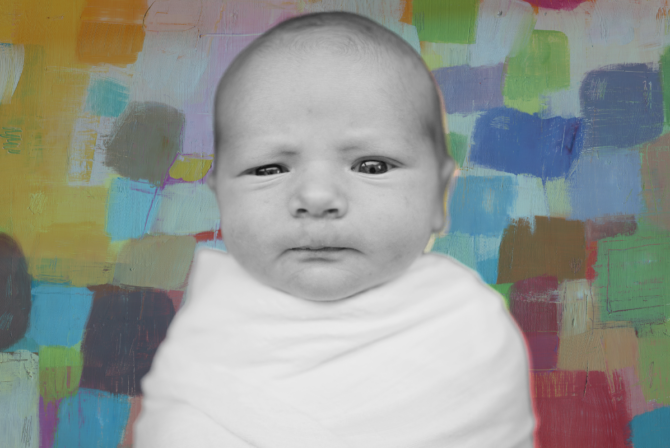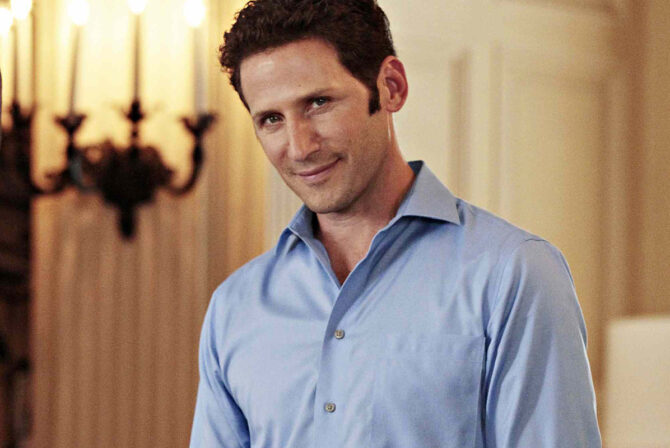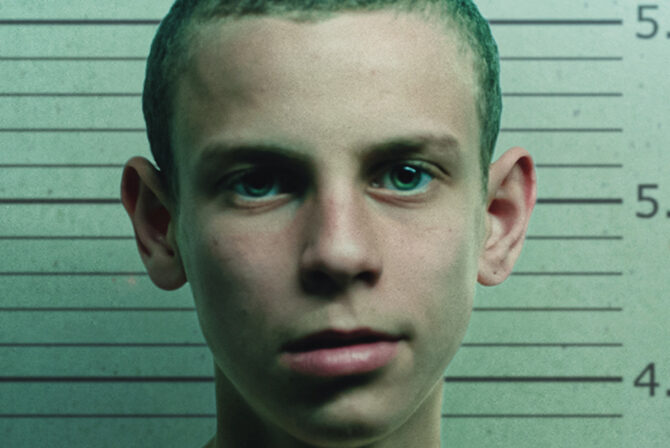There’s a 5×7 photo of my daughter in a frame on my bookshelf. In it, she’s smiling wide, wearing her tallit, holding the Torah, the purple streaks in her hair hanging around her face in soft blown-out curls. It was a posed picture from her bat mitzvah three years ago, but her smile is genuine. She’s “beaming on the bimah,” my husband and I said when we got back the proofs.
But the other day, as I walked by, I saw that the photo was facing the wall, instead of out. So I turned it around. I didn’t think much of it until I saw it facing the wall again the next day. What is going on? I turned the photo front facing, this time in a more prominent place on the shelf. As I did this, my daughter walked by.
“Why do you keep moving that photo—I hate it! I’ve told you that a million times.” She then put if face down in the back of the shelf. “Put a different picture in that frame already. Please!”
I have a feeling why she hates the photo, but I’m not sure. I love it. It captures her on that day, a moment in time. It’s possible she doesn’t like it simply because she’s a teenager. But the truth is, not quite six months later, my husband died from complications of Multiple Sclerosis and West Nile Virus. Of course she hates that picture! It’s a “before” shot. A painful memory of what our lives used to look like, when her daddy was alive, but not doing so well.
My daughter is the only granddaughter on both sides of the family to have had a bat mitzvah. It was a Big Deal. Friends and family flew in from other sides of the country. Like a wedding, the event took up the entire weekend. There was a rehearsal dinner the night before, the ceremony itself, then a huge party followed by a brunch the next day. My husband and I worked hard to create a “this is your life” movie for our only child. We played it at the party, featuring snapshots and videos of her life, including friends and teachers who helped shape our daughter into the person she was at 13 years old.
It was a magical weekend, but my husband was really struggling. He was at his thinnest. His walking was labored. The heat of the day exacerbated his MS symptoms. So while it was a happy and joyous occasion, from my vantage point, I noticed that his health was taking a turn. In other pictures from that day, my husband is smiling, so proud, so thrilled—but I can see the pain in his eyes, the discomfort he was feeling. These are things that only a wife would notice, but they’re there. He confided in me that he wasn’t sure he could dance the father-daughter dance. He was worried his legs wouldn’t work. He struggled to cross the bimah to read his speech—his legs, he later told me, felt like they had vices on them, and were difficult to move. But somehow he did.
Miraculously, after the ceremony, he felt better. He was raised in the chair during the Hora, one hand held high in the air in triumph, the other holding onto the seat for dear life. He was happy. He managed to dance with our daughter. He thanked everyone for being there before the movie started.
Looking back on that weekend, I can’t help but feel conflicting emotions. We were all bursting with happiness, and at the same time, I felt the deepest concern—it seemed like the beginning of the end.
A few months after the bat mitzvah, my husband turned 50 years old. A few months after that, he died. It was a crazy, seminal year. My daughter and I talk about her father all the time. He was a warrior when he got his MS diagnosis. He hung in there, making room in his life for this disease, accommodating it, and then fighting it. He was a good man, my husband. He was nice and kind, funny, generous, loving. My daughter knows this. She knows about his love of music and sports (specifically the Los Angeles Lakers and the Dodgers—go blue!). She knows how special and important his friendships were. But he’s not here to tell her how proud he is of her. How beautiful she is, how much her bat mitzvah meant to him.
I think I will replace that photo with another. I’ll take it out and keep it somewhere special. I’m not sure which picture I’ll put in the frame, but this time I’ll let my daughter choose.
Read More:
Coming to Terms with Medical Termination
‘Do You Have Any Kids Yet?’ is a Question I Hope to Stop Hearing Soon
My ‘Invisible Illness’ Makes Me Feel Different from Other Moms







